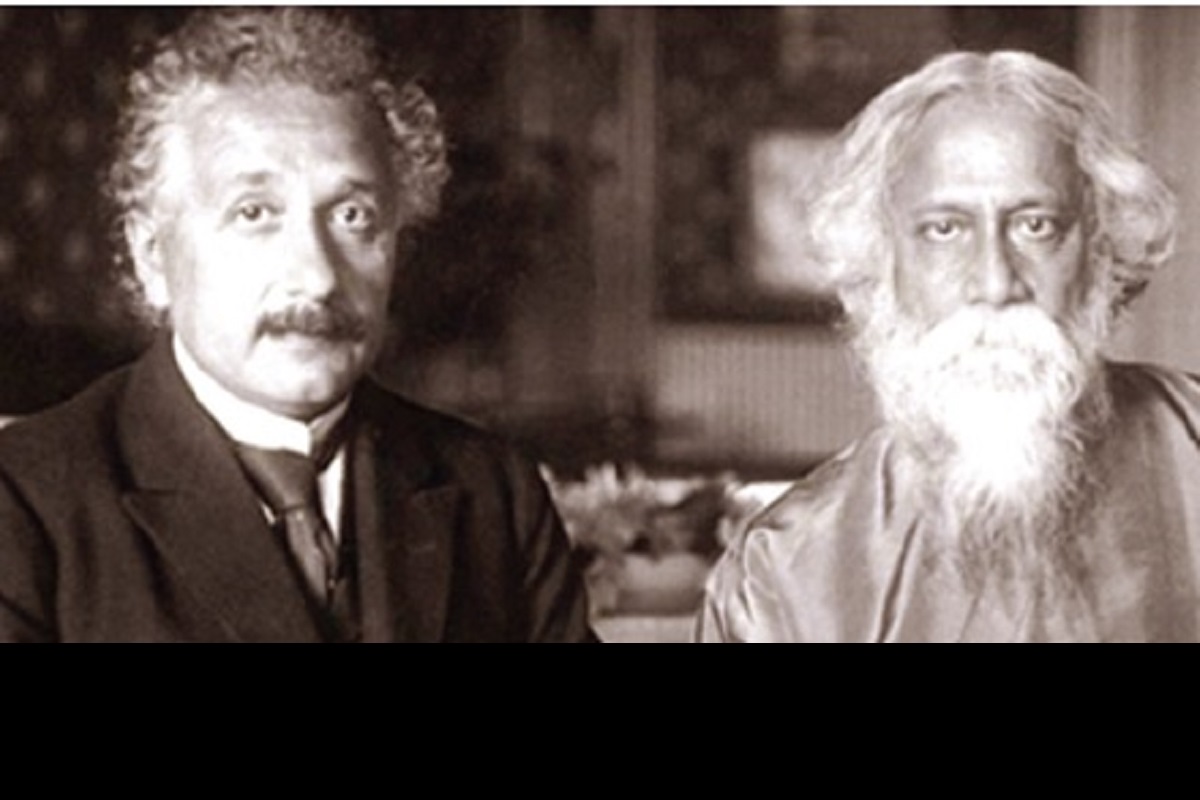KMC focus on slum area development for next fiscal
With emphasis on women-centric projects, the city’s slum areas are slated for an infrastructural development in the next fiscal.
Dr Sinha, president of governing council, Tagore Centre for Natural Science and Philosophy (TCNSP) which in collaboration with Maulana Abul Kalam Azad Institute of Asian Studies (MAKAIAS), is organising the conference scheduled to be held at Rabindra Tirtha, New Town.

Tagore penned Visva Parichay which was likely the outcome of his meeting with another Nobel laureate Albert Einstein, scientist Bikash Sinha said. (SNS)
Renowned scientist Dr Bikash Sinha today said Rabindranath Tagore’s Visva Parichay should be a part of curriculum from class nine to 12. There was a time when there was no gap between the studies of literature and science. To bridge this gap, we seek that Tagore’s Visva Parichay, he said. He was addressing a Press conference to announce an international seminar on “The Enigma Of Science And Philosophy The Enduring Vision Of Rabindranath Tagore” scheduled to be held on 6 November.” The event seeks to reestablish the link between literature and science,” he said.
Dr Sinha, president of governing council, Tagore Centre for Natural Science and Philosophy (TCNSP) which in collaboration with Maulana Abul Kalam Azad Institute of Asian Studies (MAKAIAS), is organising the conference scheduled to be held at Rabindra Tirtha, New Town. Tagore is appreciated for his great contribution towards literature, music and painting, but the fact remains that he had a passion for science till the end of his life but it has not been highlighted, he said.
Advertisement
Tagore penned Visva Parichay which was likely the outcome of his meeting with another Nobel laureate Albert Einstein, Dr Sinha said. He dedicated it to another great scientist, Satyendranath Bose, transcending a generation gap with ease, he felt. Tagore belonged to an age when science and literature walked hand in hand, Dr Sinha said. His friendship with Jagadish Chandra Bose, another great scientist, is a pointer to his love for science. Multifaceted genius that he was, Tagore did not require to work out complex mathematical problems to arrive at a scientific conclusion, Dr Sinha said. Like a great scientist, the poet had incredible intuitive power, he said.
Advertisement
Tracing Tagore’s quest for scientific truths from the time his father Debendranath acquainted his young son with the planetary configurations of a night sky during his travels to the hills, Dr Sinha felt that as he grew up the poet continued to look out for the wonders of science. As one wonders at the change of moods from pleasure to pain perceptible in Tagore’s songs, techniques of physics is involved in such changes, Dr Tapas Ghosh, emiratus professor, Jadavpur University said. The other speakers scheduled to address the seminar are Dr Uma Dasgupta, Dr Martin Kaempchen, Dr Gustavo Canzobre. Thespian Soumitra Chattopadhaya is also scheduled to participate.
Advertisement